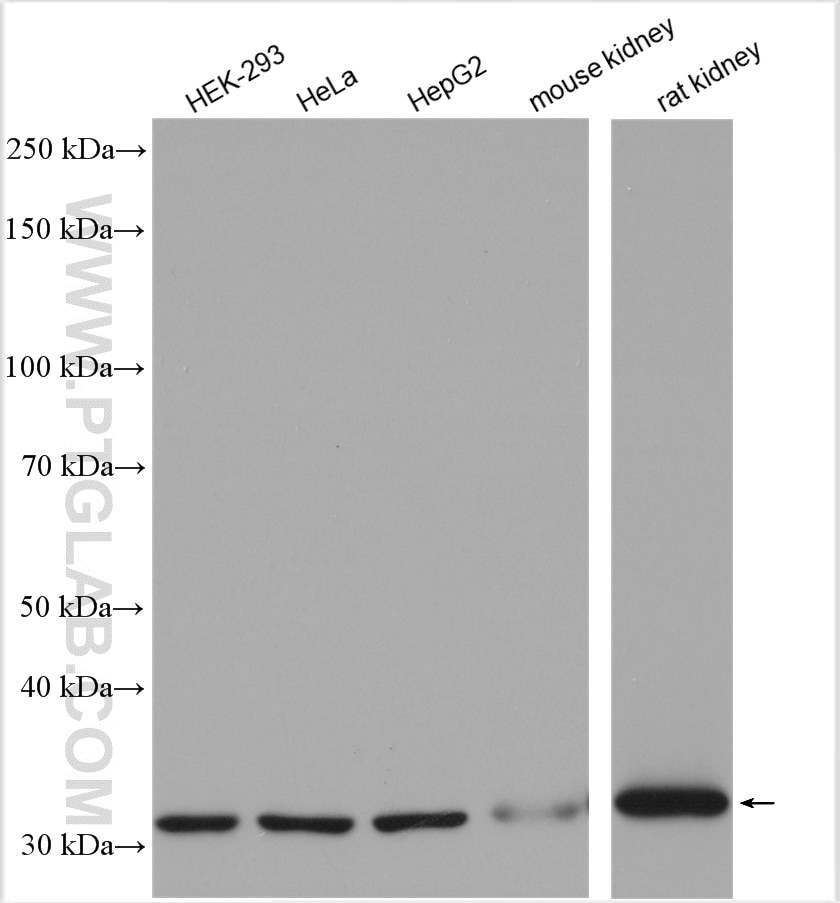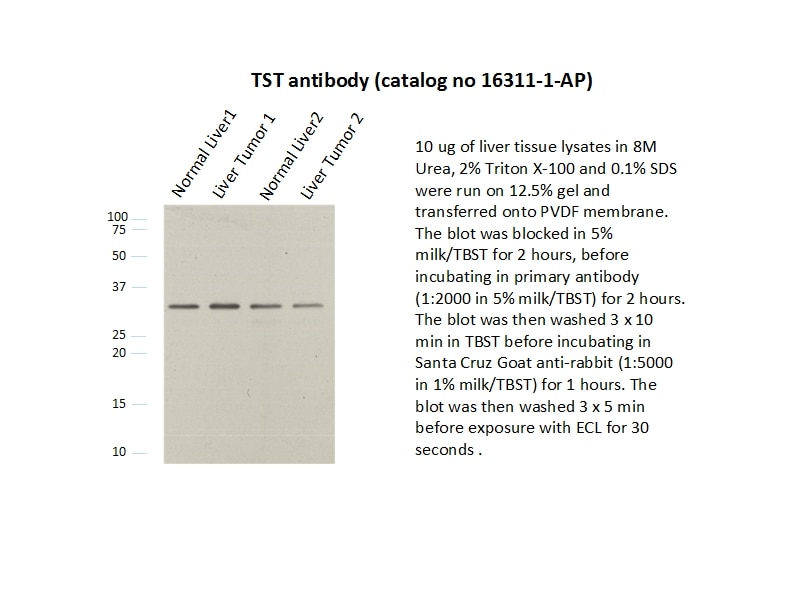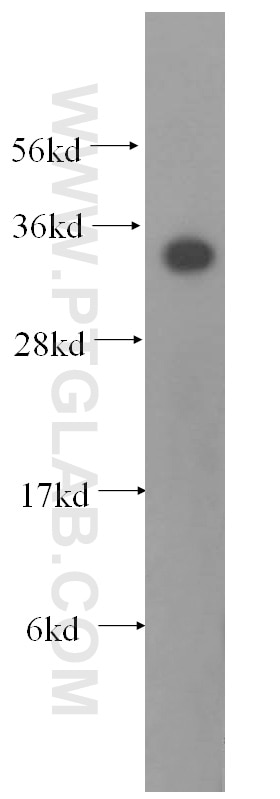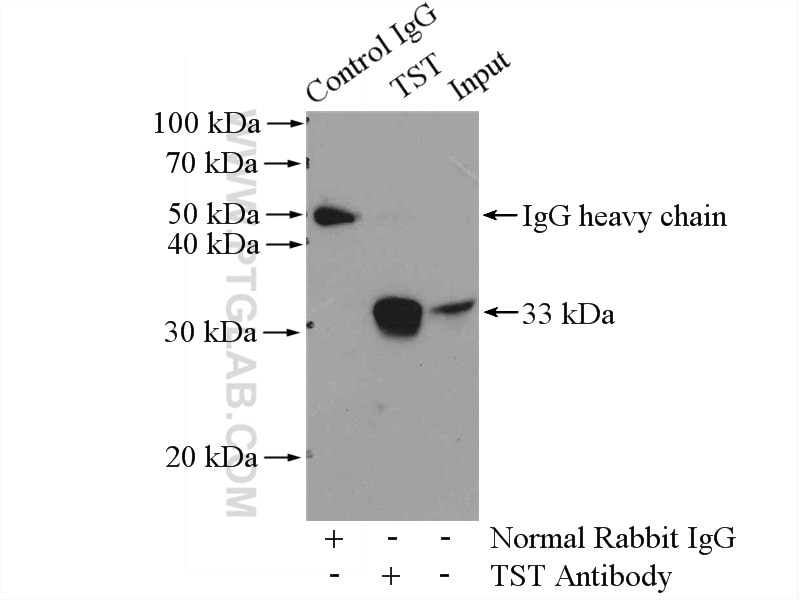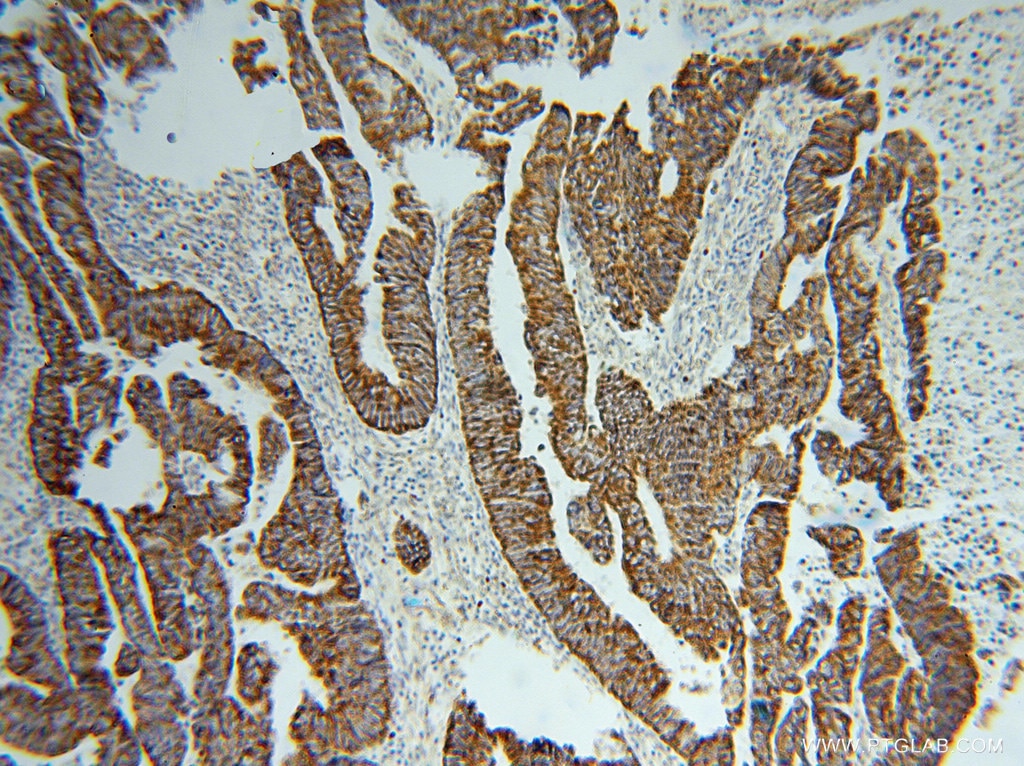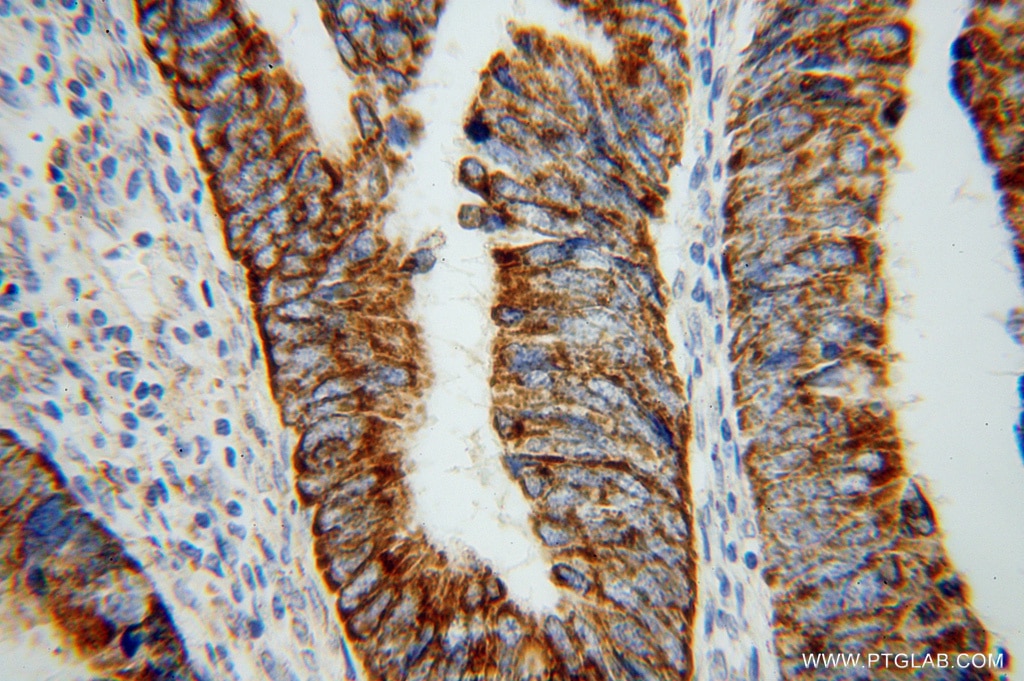TST Polyclonal antibody
TST Polyclonal Antibody for IHC, IP, WB, ELISA
Host / Isotype
Rabbit / IgG
Reactivity
human, mouse, rat
Applications
WB, IP, IHC, ELISA
Conjugate
Unconjugated
Cat no : 16311-1-AP
Synonyms
Validation Data Gallery
Tested Applications
| Positive WB detected in | HEK-293 cells, liver tissue, human kidney tissue, HeLa cells, HepG2 cells, mouse kidney, rat kidney |
| Positive IP detected in | HEK-293 cells |
| Positive IHC detected in | human colon cancer tissue Note: suggested antigen retrieval with TE buffer pH 9.0; (*) Alternatively, antigen retrieval may be performed with citrate buffer pH 6.0 |
Recommended dilution
| Application | Dilution |
|---|---|
| Western Blot (WB) | WB : 1:1000-1:8000 |
| Immunoprecipitation (IP) | IP : 0.5-4.0 ug for 1.0-3.0 mg of total protein lysate |
| Immunohistochemistry (IHC) | IHC : 1:20-1:200 |
| It is recommended that this reagent should be titrated in each testing system to obtain optimal results. | |
| Sample-dependent, Check data in validation data gallery. | |
Published Applications
| WB | See 8 publications below |
Product Information
16311-1-AP targets TST in WB, IP, IHC, ELISA applications and shows reactivity with human, mouse, rat samples.
| Tested Reactivity | human, mouse, rat |
| Cited Reactivity | human, mouse |
| Host / Isotype | Rabbit / IgG |
| Class | Polyclonal |
| Type | Antibody |
| Immunogen | TST fusion protein Ag9346 |
| Full Name | thiosulfate sulfurtransferase (rhodanese) |
| Calculated Molecular Weight | 297 aa, 33 kDa |
| Observed Molecular Weight | 33 kDa |
| GenBank Accession Number | BC010148 |
| Gene Symbol | TST |
| Gene ID (NCBI) | 7263 |
| RRID | AB_2211217 |
| Conjugate | Unconjugated |
| Form | Liquid |
| Purification Method | Antigen affinity purification |
| Storage Buffer | PBS with 0.02% sodium azide and 50% glycerol pH 7.3. |
| Storage Conditions | Store at -20°C. Stable for one year after shipment. Aliquoting is unnecessary for -20oC storage. 20ul sizes contain 0.1% BSA. |
Background Information
Thiosulfate sulfurtransferase (TST), also known as rhodanese, is a mitochondrial enzyme involved in cyanide detoxification and the formation of iron-sulfur proteins and the modification of sulfur-containing enzymes.
Protocols
| Product Specific Protocols | |
|---|---|
| WB protocol for TST antibody 16311-1-AP | Download protocol |
| IHC protocol for TST antibody 16311-1-AP | Download protocol |
| IP protocol for TST antibody 16311-1-AP | Download protocol |
| Standard Protocols | |
|---|---|
| Click here to view our Standard Protocols |
Publications
| Species | Application | Title |
|---|---|---|
EMBO Mol Med CoQ deficiency causes disruption of mitochondrial sulfide oxidation, a new pathomechanism associated with this syndrome. | ||
Antioxid Redox Signal The Cysteine Dioxgenase Knockout Mouse: Altered Cysteine Metabolism in Nonhepatic Tissues Leads to Excess H2S/HS(-) Production and Evidence of Pancreatic and Lung Toxicity. | ||
Hum Mol Genet Coenzyme Q10 modulates sulfide metabolism and links the mitochondrial respiratory chain to pathways associated to one carbon metabolism. | ||
Biochem Pharmacol Cystathionine-γ-lyase (CSE) deficiency increases erythropoiesis and promotes mitochondrial electron transport via the upregulation of coproporphyrinogen III oxidase and consequent stimulation of heme biosynthesis. | ||
Amino Acids Primary hepatocytes from mice lacking cysteine dioxygenase show increased cysteine concentrations and higher rates of metabolism of cysteine to hydrogen sulfide and thiosulfate. |
